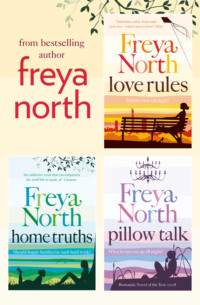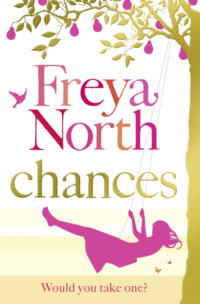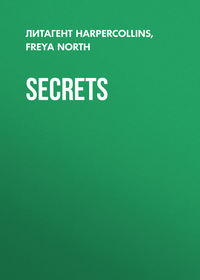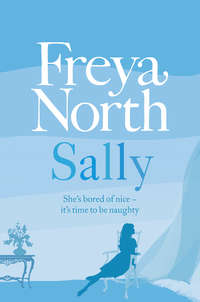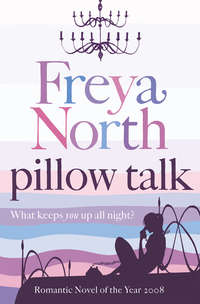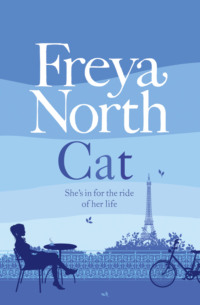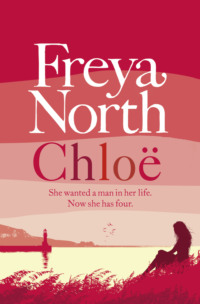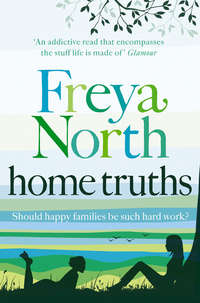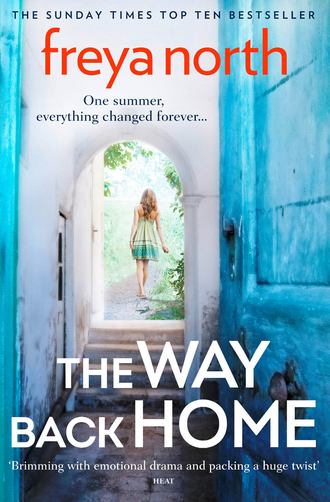
Полная версия
The Way Back Home
Malachy Bedwell was born in Derbyshire. He is the son of world-renowned architect Orlando Bedwell and Jette Stromsfeld, a furniture designer of international standing. He was the first child to be born at Windward, the artists’ collective that his parents founded in the late 1960s, with other seminal figures including Robin and Rachel Taylor, Gordon Bryce, Laurence Glaub, George and Lilac Camfield and Louis Bayford.
He credits the absolute assimilation of all arts into everyday life at Windward with his enduring passion for them.
‘As a baby, my mother fed me in a highchair designed by Gerrit Rietveld. I hung my school blazer on a Louise Bourgeois sculpture and read Agatha Christie novels whose covers were original Windward artworks. The soundtrack of my teenage years was either played at home or even written there. The phone would go and Celia Birtwell would simply say, “Hullo, Malachy – is your mother home? It’s Celia.” There’d be a knock at the door and someone would be standing there, asking, “Is Keith here?” and we’d go upstairs and tell Keith Richards that he had a visitor. Our cutlery was David Mellor prototypes. Our furniture was Bauhaus and beyond. We kept apples in a Bernard Leach bowl.’
Oriana looked up. I remember that bowl.
She remembered Keith too. And Marlon, his son. She’d had a huge crush on him. Jed and Malachy had taken the piss terribly though both their noses had been visibly out of joint too.
She read on, under her breath.
The White Peak Art Space seeks to unify the diverse talent of international artists inspired by Derbyshire. Whether they live here or abroad, whether they work figuratively or wholly abstract, whatever media they favour, our artists are united by the Peak District genius loci, the spirit of the place.
She felt proud of Malachy and yet strangely sad too. But you wanted to be a writer, Malachy. You and that great novel of yours. The White Peak Art Space arguably had philanthropic as well as financial value. But was it what Malachy truly wanted to do? She remembered him saying how he wanted to be the John Irving of his generation, having read The Hotel New Hampshire cover to cover twice in one week. How they’d all fallen about laughing! Now she felt sad, concerned. She wondered whether losing his eye had anything to do with it. She hoped not. She shuddered.
The rain had stopped and suddenly the sun was charging through and the wet landscape let off a glare; flares of light piercing through the windscreen. Headache weather.
Oriana thought, where do I go now?
Hathersage? Hathersage was no more home than San Francisco was. An image of the cedar at Windward loomed large – it was the place she’d always gone to for solace – something about shade and solitude under the embrace of the branches, the scent of the space around the trunk, the way the air was always a degree cooler than beyond the boughs, how the light from the day outside the tree was filtered into something else as it spun through the branches, the needles. It was a world within a world and for so many years it had been hers alone. In her youth, the other children had been put off it by a strange psychic who’d stayed at Windward and denounced the tree as the Place That Has Seen Death. But she couldn’t go back to the tree or Windward – not with Jed there ready to leap from the balcony and her father inside the house and two small unknown girls badgering to befriend her.
The paradox struck her – she was welcome the world over; welcome at Windward, in Hathersage, she could pitch up in California tomorrow and a dozen people would fling open their doors and arms for her. Yet just then it felt that there was nowhere that was hers, not one place she could truly call home. Other people’s places could never be anything other than halfway houses. She looked around her; this wasn’t even her car. Those were Bernard’s Werther’s Originals in the cup holder of her mother’s Peugeot. There was a synthetic-smelling cardboard air freshener in the shape of a smiley-faced strawberry dangling from the rear-view mirror and an oversized Road Map of the British Isles in the footwell, as if her mother and Bernard took to navigating a sweetly scented kingdom on a whim any day of the week. She thought, I’d never choose this type of car for my own. And then she thought, you ungrateful cow. She felt alone mostly because she knew she was defiantly turning her back on the few who were there for her.
Cat – her childhood friend who knew so much, but not everything.
Ashlyn – her closest friend who knew so much, but not everything.
Casey. Jed. Malachy. The men she’d loved, lost, left.
She traced her finger over the shiny lion emblem in the centre of her mother’s steering wheel.
‘It doesn’t matter how many questions there are if there can never be any answers.’
She thought, what a stupid thing to say out loud. She thought, I am not a teenage existentialist and I’m not a cod-philosophizing hippy even though I grew up with enough of them.
‘I’m thirty-bloody-four and there’s not a single certainty in my life.’
Oriana forced herself from looking inwards to watching how the dusk was now creeping across the moor like spilled treacle, edging its way in a slow but determined advance. Her fingertips were cold and she needed to blow her nose. If this had been her car, not her mother’s, she’d have had to use her sleeve. But she looked in the glove compartment and found, as she predicted, a packet of tissues. She gave the strawberry-faced air freshener an apologetic smile. She started the engine. She wanted to be indoors, by a fire, in an armchair, on her own with a cup of tea. She wanted to be home, wherever that was. The room which opened up in her mind’s eye wasn’t in San Francisco nor was it in Windward but it was as well known to her as either. She started the car, made a U-turn and drove.
Django McCabe watched the headlights send stuttering beams into his quiet Saturday evening as the car made its way along the lurch and swerve of his unmade driveway. Sometimes, he experienced sights as sound and, though from inside the house he couldn’t hear the car’s engine, its lights were like an uninvited visitor with a grating voice asking for a favour he wasn’t actually prepared to give.
‘You can bugger off for a start,’ he muttered, taking his mug of Bovril and heading for the utility room where he sat down and said bugger, bugger off. He thought to himself how the more social a person was in their heyday – as he had been to a legendary extent – then the more justified was a cantankerous dotage. So bugger off, whoever you are, this is my Saturday evening. I’m closed.
But the voice, when it called out, baffled him. He was expecting the brittle but strident tone of the village busybody. Perhaps the gruff hail of someone off to the Rag and Thistle. More likely, the gently melodious greeting from the vicar who had called in with alarming regularity over recent months despite Django having visited the church only twice – and once was accidental. But he wasn’t expecting the voice of someone young. And female.
‘Knock knock. Django? It’s Oriana.’
CHAPTER ELEVEN
Cat put the phone down and looked at it thoughtfully.
Ben watched. ‘Everything OK?’
She nodded slowly. ‘I think so.’
‘Do you want any more pizza?’
She looked at the box, in which the two remaining slices looked now to be made of the same cardboard. ‘No, thanks.’ She knew her husband would wrap them in tinfoil and have them for breakfast, cold.
‘That was Django.’
‘I gathered.’
‘Oriana dropped in.’ Cat thought about it. ‘She stayed for two hours.’
‘That was nice of her?’ Ben was unsure why Cat appeared disconcerted.
‘He said she asked to go upstairs and then she wandered around, looking in rooms and standing deep in thought.’
‘And?’ Ben didn’t want to comment too much – the umbilical cord appeared to be syphoning off much of his wife’s patience and sense of humour. If that was the case, their baby would be imperturbable and have great comic timing.
‘It’s just –’ Cat thought about it. ‘She’s my oldest friend – I know everything about her.’ Absent-mindedly, she pressed at her jutting navel as if trying to keep thoughts in. ‘But when I saw her, it struck me that she was just ever so slightly guarded – as if there was something essential she was concealing.’
‘Maybe she didn’t want to say in front of Django?’
‘Don’t be ridiculous – Django’s world famous for being unshockable.’
‘I wouldn’t take it personally.’
‘Why wouldn’t I? She’s my oldest friend. God! You just don’t understand!’
Ben counted to ten in his head. ‘Well – perhaps she was just passing?’
Cat looked at him as if he was dense. Django lived so off the beaten track that impromptu visits always necessitated an involved detour and a certain level of planning.
‘Did Django say where she was on her way to – or back from – to make a trip to his plausible?’
There was a long pause. ‘She’d been to Windward,’ Cat said. ‘That’s why it’s weird. She went back to Windward. Just like that.’ She rubbed her belly thoughtfully, as if hoping to elicit the genie from the lamp.
‘And you wanted to go with her?’ Ben was trying to second-guess. Cat looked at him blankly. ‘Or – you wanted her to let you know she was going? Or had been?’
‘You would’ve thought she’d’ve phoned me.’ She felt hot, uncomfortable. ‘Whatever. Doesn’t matter. I don’t want to talk about it. Let’s watch telly. Can I have a cuppa?’
Ben took the pizza boxes into the kitchen, Cat muted the sound on the television, randomly channel hopping while managing her thoughts. Why is Oriana back? Why would she go to Windward anyway? Why hadn’t she told her – beforehand or straight after? And she thought, have we grown apart? Can friendships not last such lapses? If all you have in common is a shared past, is that reason enough to believe you’ll always be as close as you were? To Cat just then, the past was neither halcyon nor troubling, it was simply a long, long time ago.
Ben made tea and thought to himself how often he had heard his patients who were pregnant complain that people treated them differently – as if growing a baby equated to diminished brain cells and the incapacity for any conversation other than about babies. They felt excluded because of some misplaced need of others to protect them from any topic anything other than bland ones. And, for the most part, they didn’t like it. My baby’s stolen my identity! one had declared. He thought about Oriana. He’d only met her a few times, when they were all living in the United States but, through Cat, he felt he knew her well enough. He remembered how, if ever he answered her call, the first words she’d always say were sorry to bother you.
‘She’ll call,’ he told his wife. ‘She’s probably just worried about bothering you.’
* * *
In Hathersage, no one asked any searching questions. It was enough that ‘Did you have a nice day?’ was met with ‘Yes, thanks, did you?’ In fact, most of the questions came from Oriana who tactfully chose topics she knew Rachel and Bernard could answer at length. The route to Wakefield. The Bennets’ house. What they’d had for their dinner. And their tea. The weather forecast tomorrow. The amount of detail that anodyne subjects warranted was surprising and insubstantial minutiae floated through the evening like musak until it was a respectable time to turn in. As Oriana climbed the stairs, she thought to herself, that’s probably the longest conversation I have ever had with my mother.
It was only after cleaning her teeth, when she caught sight of herself in the mirror unawares, that the magnitude of the day that was closing swept over her again. But it wasn’t what had happened or where she had been. At that moment it wasn’t even whom she had seen. It was who had seen her, looking like this.
Frequently, since her return from the US, her mother had remarked how thin Oriana looked. But ‘thin’ implied something gently fragile, like a bird, like a Hans Christian Andersen character, something young and pretty and ethereal, waif-like. Butterfly wings and gentle breeze and dandelion heads and spun sugar. ‘Thin’ brought out the protective in others. But, now she looked, Oriana didn’t see thin. She saw haggard. She saw gaunt grey. She saw someone to baulk at, to shy away from; to think Christ, she’s aged, she looks terrible. What the fuck happened to Oriana? they’d say. Have you seen her these days? Old beyond her years.
‘Mum!’ She called out before she’d even opened the bathroom door, let alone unlocked it. ‘Mum!’
Rachel’s bedroom door opened. Oriana must have been in conversation with her reflection for quite some time if her mother’s bleariness was anything to go by.
‘What is it? Honey – you OK?’
Bernard could be heard from the gloom of the room saying everything OK? everything OK? like a daft old parrot trying to keep up with the action.
‘It’s fine,’ Rachel called back at him. ‘We’re good.’
‘My hair,’ Oriana wailed. ‘Look at it! I look hideous. Do you have a good hairdresser? Are they open Sundays?’
‘You look fine,’ said Rachel, agitated. ‘You’re a bit thin – but you’re tired. Go to sleep and yes, I have a hairdresser,’ and she touched her own hair as if to double-check. ‘And no, they’re not open Sundays.’
‘They are in the lead-up to Christmas, love,’ came Bernard’s voice.
‘It’s fucking April!’ Rachel seethed over her shoulder, before clapping her hand over her mouth, wondering how long it had been – truly, how many years – since she’d sworn like that. ‘Look what you made me do!’ she hissed at Oriana. ‘Just go to sleep, for God’s sake.’ Reproach and dislike creased her face.
Rachel had never spoken to Bernard like that, never. She held his hand tightly as she lay awake, frowning into the dark. Her daughter should not have come back and, just then, she really resented her. Oriana was rested, fed, had a roof over her head, their home and car at her disposal and yet she looked worse now than when she arrived. Where was the gratitude in that? Into the conspiratorial darkness, Rachel let her thoughts find support. She liked her daughter less when she was troubled. In fact, she liked her less when she was in direct contact. If their relationship was to survive – or even go back to how it had been – she really did need her out of the house. Emails and occasional phone calls – that’s when they’d rubbed along best. She actually didn’t much like her at all – an unpleasant sensation that made her feel unwell. Distance and time could alleviate it. It had done so in the past, after all.
* * *
At Windward, Oriana wasn’t mentioned at all that evening. Instead, the Bedwell brothers drank beer and watched sport and shouted at the teams on the television. It was innocuous and boorish, akin to watching in the pub, commentating on the game with people they hardly knew. And Malachy and Jed should have steered clear of Scotch. But the match was over and the beer was gone, so out came the Laphroaig which took the pub philosophizing to the next level as they spouted argumentatively on politics and policies, each brother taking a turn at pulling on the garb of the devil’s advocate and wrestling each other for it.
Jed should have said no to whisky. He didn’t have the stomach for it, especially not after European lager and the disappointment of a two–nil defeat. Consequently, he became very drunk, very quickly and, after decimating bankers, Russian oligarchs and the Tories, he staggered off to bed mid-sentence, only to throw up later in the early hours.
Malachy heard his brother chucking his guts up. Malachy should have said no to whisky too. It didn’t make him paralytic, it made him insomniac and introspective. He hadn’t yet slept when Jed went stumbling to the bathroom. He’d been sitting up in bed, initially comforted by the pitch darkness making him equally blind in his good eye. Velvet black and even. He just sat in bed, appreciating the sensation of both eyes being open and both eyes seeing nothing; feeling that peculiar warmth that came with night-time silence and obscurity, nothing material to see, to imagine, to tax the eye – either eye. But then, the undeniable sense that darkness is not a constant but a flux; forms beginning to emerge as his good eye told his lost eye what they were. Mahogany chest. Flung shirt. Door frame. Right shoe. Something else – wallet. What’s my wallet doing on the floor? Left shoe. Handles on the wardrobe doors that look like cartoon eyes.
Конец ознакомительного фрагмента.
Текст предоставлен ООО «ЛитРес».
Прочитайте эту книгу целиком, купив полную легальную версию на ЛитРес.
Безопасно оплатить книгу можно банковской картой Visa, MasterCard, Maestro, со счета мобильного телефона, с платежного терминала, в салоне МТС или Связной, через PayPal, WebMoney, Яндекс.Деньги, QIWI Кошелек, бонусными картами или другим удобным Вам способом.


